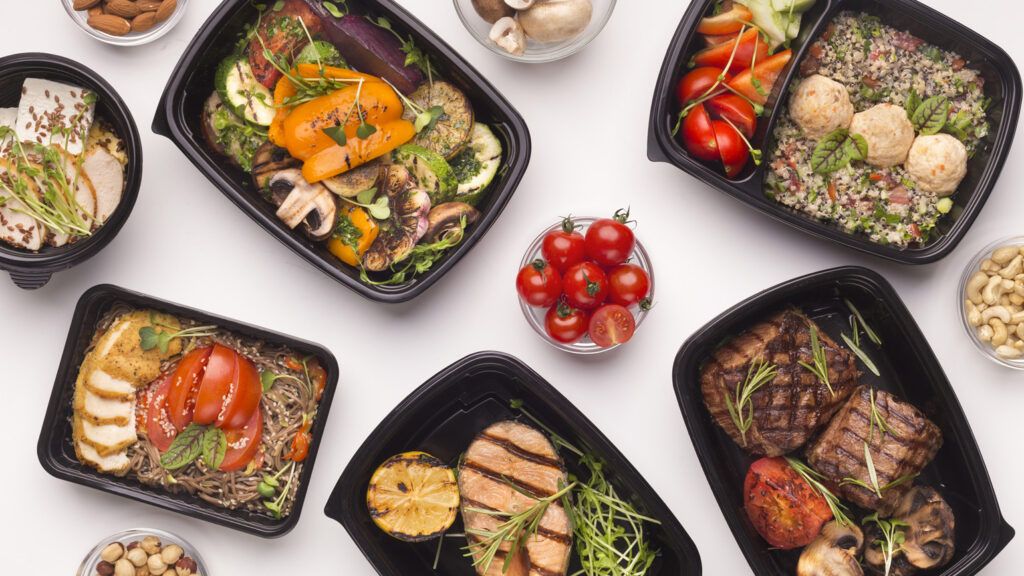Julie Hayes is the Content Manager at Benjamin Rose Institute on Aging.
The adage “food is medicine” is rooted in truth. Proper nutrition is necessary to survival and provides a host of protections from various diseases and conditions. A healthy diet is especially important to older adults because they often have chronic conditions or illnesses, and immune responses weaken with age. But providing your loved one with essential nutrients has become more challenging in a number of ways due to Covid-19. These range from financial strains and limited food supplies to disruptions in programs that have previously offered meal services. There is a great deal you can do, however, to ensure that your loved one’s kitchen is properly stocked and that he or she is eating in a healthy manner.
By maintaining a proper diet, you can decrease your risk of the chronic conditions which may place you at higher risk for severe illness from Covid-19, like heart disease and diabetes. Nutritious foods also boost your body’s supply of vital disease-fighting vitamins, minerals and proteins. At the same time, when you don’t eat properly, your risk for heart conditions, diabetes, obesity, hypertension and other diseases and chronic conditions increases, which makes you more vulnerable to viruses. If you’re lacking essential vitamins and minerals, your immune system might weaken. Older adults with poor diets are at even higher risk, since immune responses naturally decrease with age. According to the CDC, older adults, especially those who are obese or have pre-existing conditions, are among the most at-risk populations for experiencing severe cases of Covid-19 that may lead to hospitalization, use of respirators or death.
Understanding the current challenges can be the first step toward forming a plan to make sure your loved one maintains a diet that is as healthy as possible.
What nutritional challenges has Covid-19 presented?
Ensuring a healthy diet requires some additional planning and effort under the current circumstances. Among the unique nutritional challenges that Covid-19 has brought about are:
- Avoidance of shopping in grocery stores due to safety concerns, and limited supplies of some foods in-store and online.
- An uptick in stress and boredom-related overeating, combined with fewer outlets for exercise.
- Financial constraints that can lead to passing up more expensive, healthier foods in favor of unhealthy, cheaper options.
- Production issues, on both a national and international level, that have driven up the cost of foods like chicken and dairy products.
- Disruptions to regular meal services for older adults via adult day programs and senior centers.
What can you do to help your loved one maintain a proper diet?
By making good choices at the grocery store and encouraging some behavior changes in the home, you can take steps to see that your loved one continues to eat well.
When shopping for groceries, in addition to following proper safety guidelines, you can:
- Buy foods that are shown to boost the immune system, including:
· Broccoli
· Garlic
· Yogurt
· Citrus fruits (grapefruit, oranges, limes, etc.)
· Spinach
· Ginger
- Try to purchase fruits and vegetables that are in-season, as they are less costly.
- Plan meals ahead of time, make a list of all the ingredients you’ll need, and adhere to it. This is a good way to keep from buying unhealthy foods on an impulse. When you purchase only what you need, it helps you stay within your budget.
- Opt for alternate sources of protein such as eggs, tofu and garbanzo beans and other legumes if rising meat prices have become an issue.
When at home, you can:
- Keep an eye on foods your loved one may be eating simply for relief from stress or boredom. If these are unhealthy options, you may want to speak with a doctor or dietician about whether you should encourage him or her curb this emotional eating. Ask for some appropriate strategies that might help. Try substituting unhealthy comfort foods with similar, but healthier, ones. Try redirecting your loved one’s attention towards a favorite activity as a way to alleviate stress and boredom.
- Take steps to ensure your loved one is getting enough sleep. Covid-19 has affected many people’s sleep schedules, which can cause further stress and potential emotional eating. If your loved one isn’t sleeping well, the Sleep Foundation recommends watching his or her intake of alcohol and caffeine, as well as considering foods containing melatonin or serotonin, such as bananas or almonds.
- Ask the doctor for meal guidelines tailored to your loved one’s specific needs if he or she has an existing condition or has recently been discharged from the hospital. These guidelines should be followed as recommended by the physician.
- Use vitamins and minerals to supplement areas of your loved one’s nutrition that might be lacking, according to the recommendation of a doctor.
Explore local services for additional assistance if you need them. That’s what home-delivered meal programs and food banks are for. Depending on your loved one’s circumstances, they can be excellent choices.





